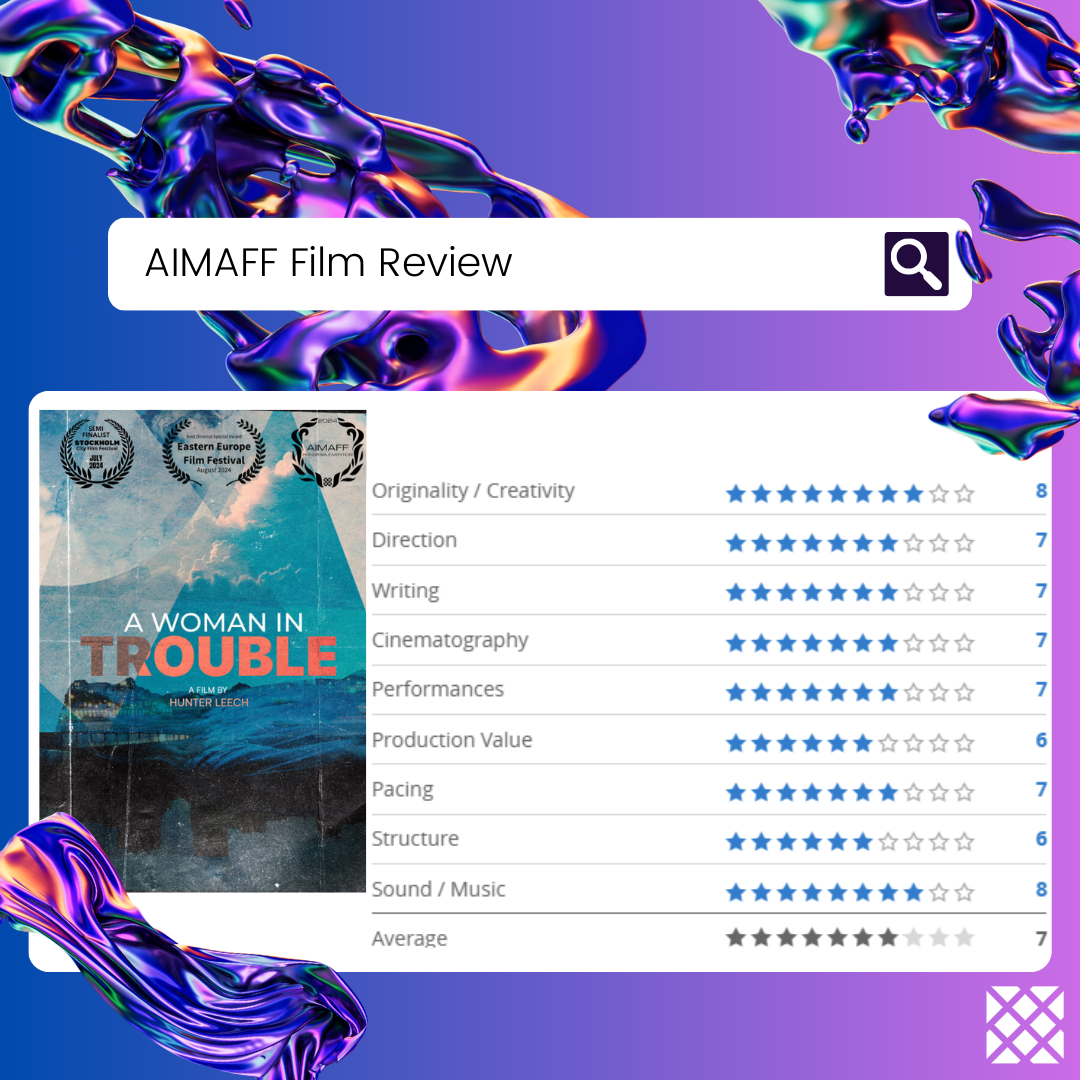"A Woman in Trouble’’: A Hypnotic Puzzle of Fear and Memory
Hunter Leech’s A Woman in Trouble is less of a film and more of a whispered fever dream—an echoing chamber of thought where reality and illusion blur like ink bleeding into water. It’s the kind of arthouse short that doesn’t hold your hand but rather lets you drown, softly, in its existential riddle. A woman, alone in her mind, lost between the waking and the dream, between grief and survival. But is she even alone? Is she even real? Or are we merely specters in her unraveling psyche, watching the frayed edges of consciousness split apart like film burning in a projector?
Leech, a filmmaker with an unquenchable thirst for the language of cinema, crafts his debut with an aesthetic that lingers somewhere between Lynchian unease and Bergman-esque introspection. With an experimental, non-linear narrative that seems to fold in on itself like an Escher staircase, the film isn’t here to tell you anything—it’s here to make you feel. And feel you do, thanks to a technical symphony of atmosphere, sound, and editing that injects every moment with a pulsating dread.
The cinematography is haunting, steeped in a kind of spectral melancholy that makes every frame feel like a half-remembered dream. Shadows stretch unnaturally, lights flicker like dying memories, and the sound design hums with an eerie resonance, as though the world itself is whispering secrets we were never meant to hear.
Yet, for all its intoxicating artistry, A Woman in Trouble does stumble. The dialogue delivery is inconsistent, with moments where the acting doesn’t quite match the film’s otherwise hypnotic spell. And while the pacing serves the film’s disorienting nature, there are stretches where the weight of its own existential pondering begins to drag. A more daring approach to framing could have elevated its already striking visual language, pulling us deeper into the protagonist’s fractured world.
With heavier, higher-quality equipment to truly bring his aesthetic to life, there’s no telling how deep into the subconscious he could pull us next.

